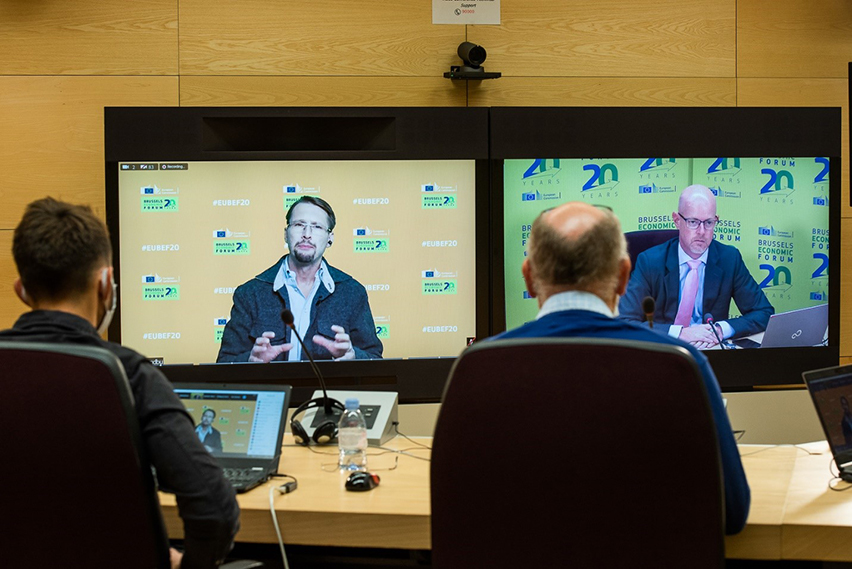Where Do We Belong? A Look at Labour Market Reform After Coronavirus
The global health crisis could focus attention on the symptoms and causes of inequality in Western society today, said Martin Sandbu, European Economics Commentator at the Financial Times. Presenting his latest book, “The Economics of Belonging: A Radical Plan to Win Back the Left Behind and Achieve Prosperity for All,” Sandbu said shifts in work patterns this year raised new questions about where and how we work.

Sandbu said the book started life as an effort to understand events in 2016, notably the election of Donald Trump in the US and the vote to leave the EU in the UK. The two votes are often attributed to a surge in populism, but Sandbu wanted to look more closely into “how did this feeling of ‘economic belonging’ end?”
For about three decades after the Second World War, incomes and wealth around much of the world became more equal between regions within a country, Sandbu told BEF participants during a live Meet the Author interactive side session.
But then “around 1980, in pretty much every country, that cohesion went into reverse,” he said. This sudden disjunction coincided with a decline in factory production, argues Sandbu. Production didn’t go down, but jobs disappeared, breaking the link between a country’s workers and its output.
The changing attitude to societies and economies is often wrongly blamed on globalisation, the FT columnist said. “The real story is technological change.”
The technological shift led to “a very unequal sharing of the benefits,” he said. “National policies failed to catch up.”
The shift away from manual labour to increased production could have been expected to be accompanied by a corresponding shift in taxation, away from labour and onto capital, but this has in general not been the case, he said. The Nordic countries have managed the shift better than most, said Sandbu. “We have a lot to learn from them – not to copy, but to learn.”
Sandbu’s book argues that rather than trying to turn the clock back to old forms of manual work and national industries – an idea that is credited with boosting support for populist parties – governments should “embrace productivity growth, but make new productivity jobs accessible to everyone.”
Sandbu said Europe should also look more closely at shifting tax from labour and onto capital and wealth. A carbon tax could also help to rebalance economies, he said, as jobs would be less likely to move away from Europe and its high environmental standards to cheaper, less regulated markets.
So far, he said, Europe showed little signs of changing and remained tied to old employment models, particularly the idea of linking benefits with a steady job.
The Coronavirus has dramatically changed working patterns, leading to increased job instability for millions, while home working has become the norm for many. Social and economic models should be adapted to reflect this, Sandbu said.
“We need to reform the welfare system to give individuals power to say no to low paid jobs. And we need to make benefits portable” as people change jobs. This would apply to people working in the “gig economy” as well as to people in “permanent” jobs, he said. The gig economy is “potentially a great thing,” Sandbu said, fostering innovation and flexibility.
Home working and social distancing have also made many people discover or rediscover life away from busy cities – a move that traditional office jobs do not support.
“Today, a lot of us have learned very suddenly to work remotely,” Sandbu said. “This is an opportunity to encourage companies to allow people to live further away from cities.”
Although the shift away from cities would require heavy investments in for instance transport infrastructure, “governments can put together the framework for this to happen… I really want policy makers to look at what the opportunities might be.”
“Europe is still one of the best places in the world to live, even with all these problems, said Sandbu. “Europe could become a model again, if we can get back to a model of an economy that works for everyone and believes in itself,” he concluded.
